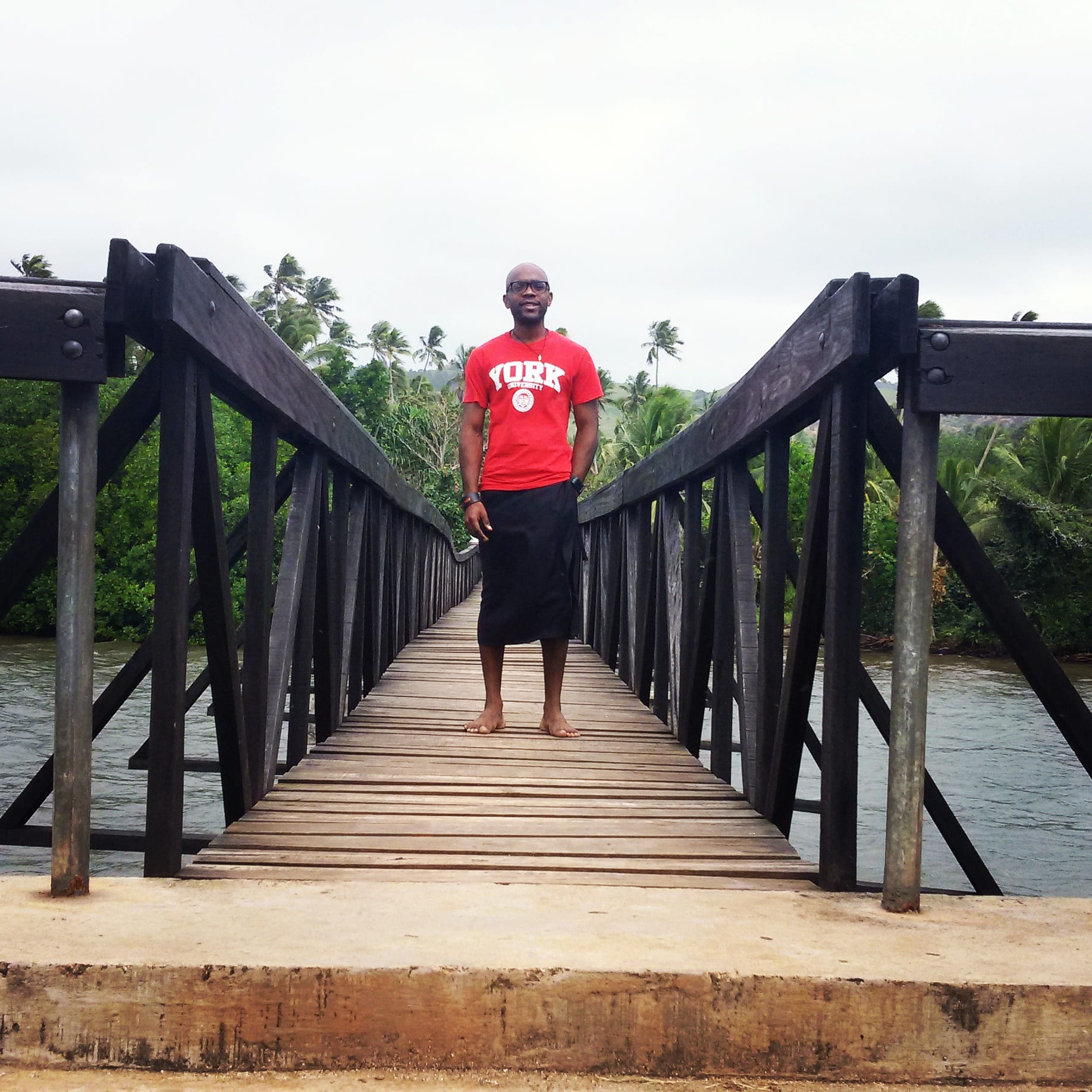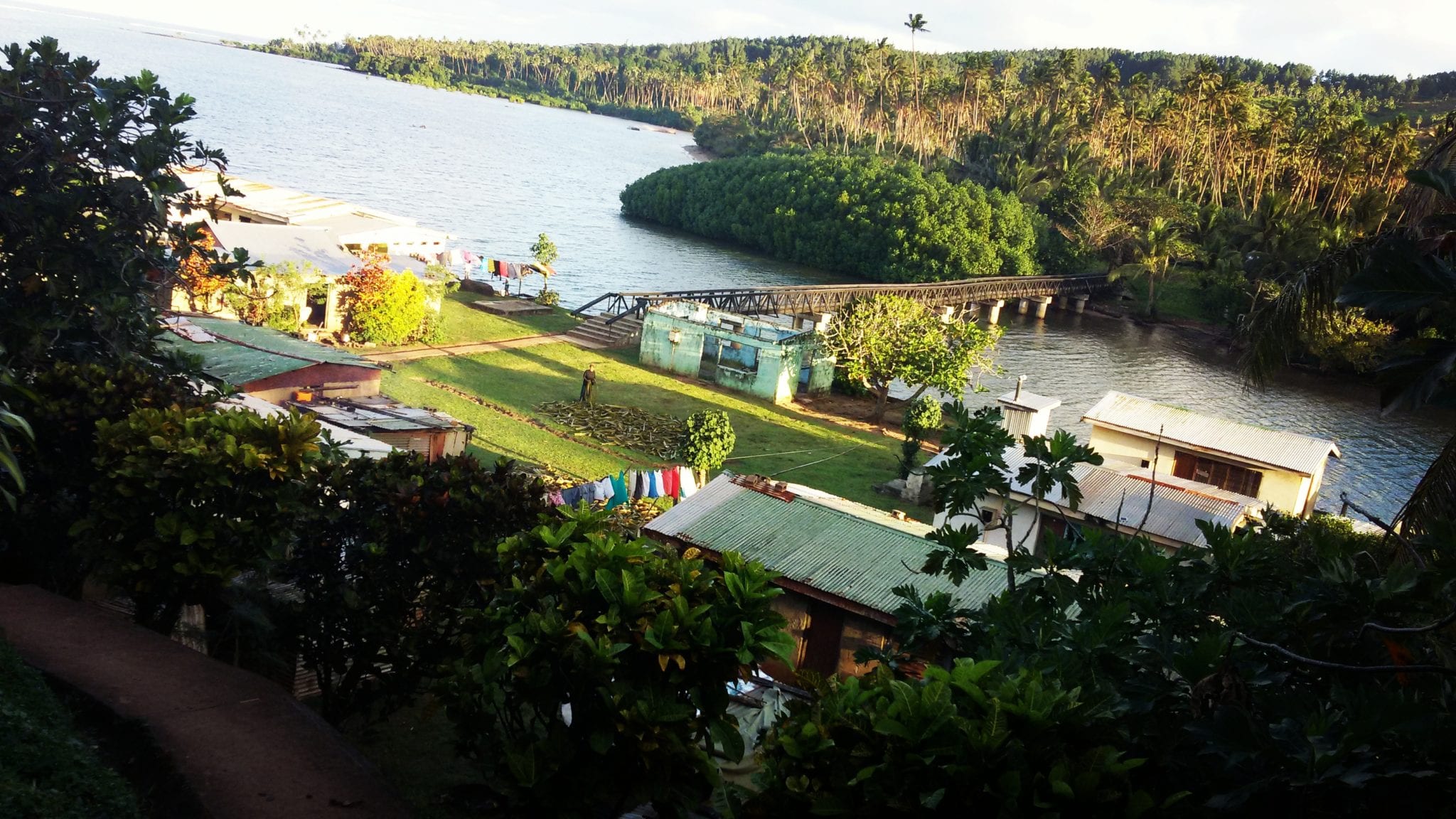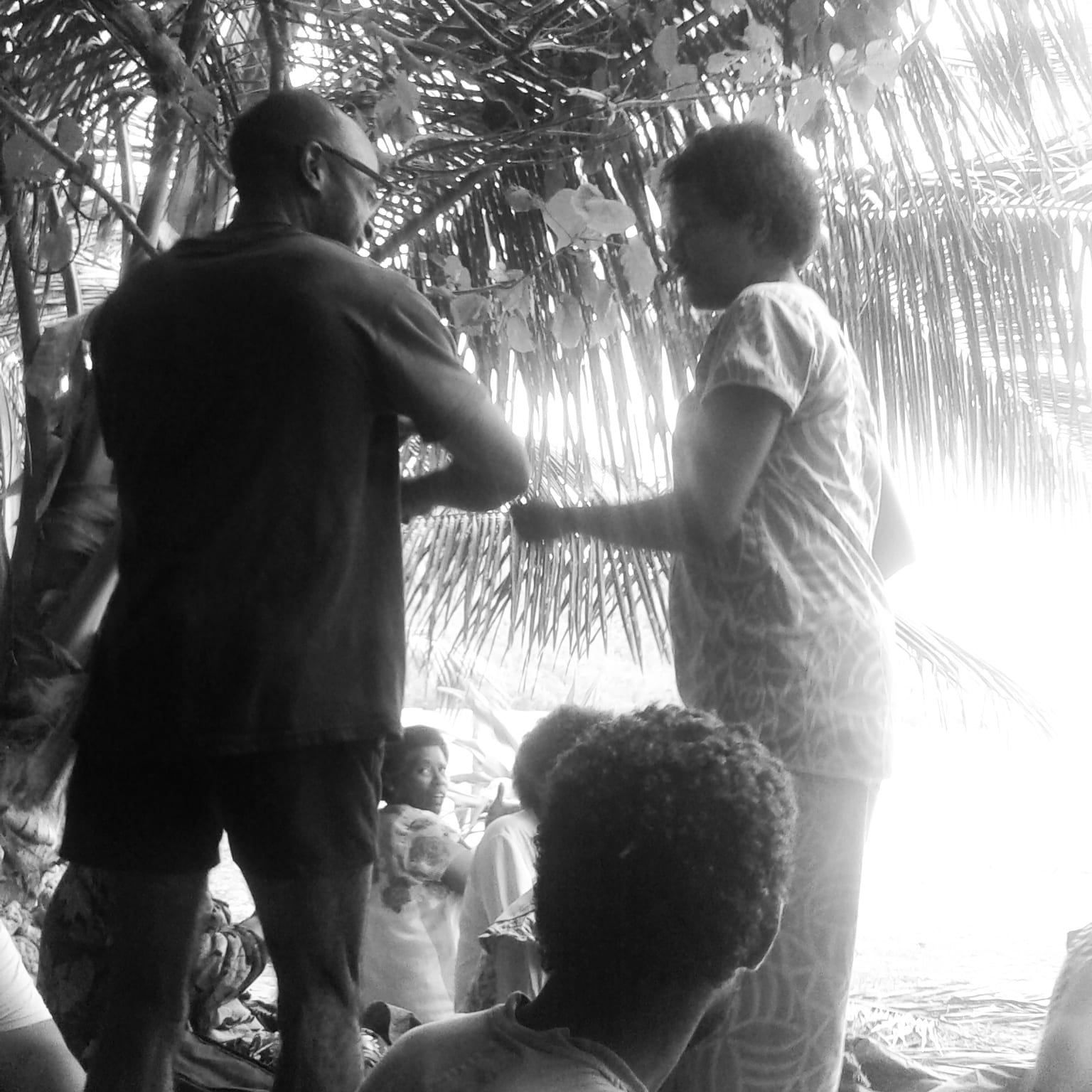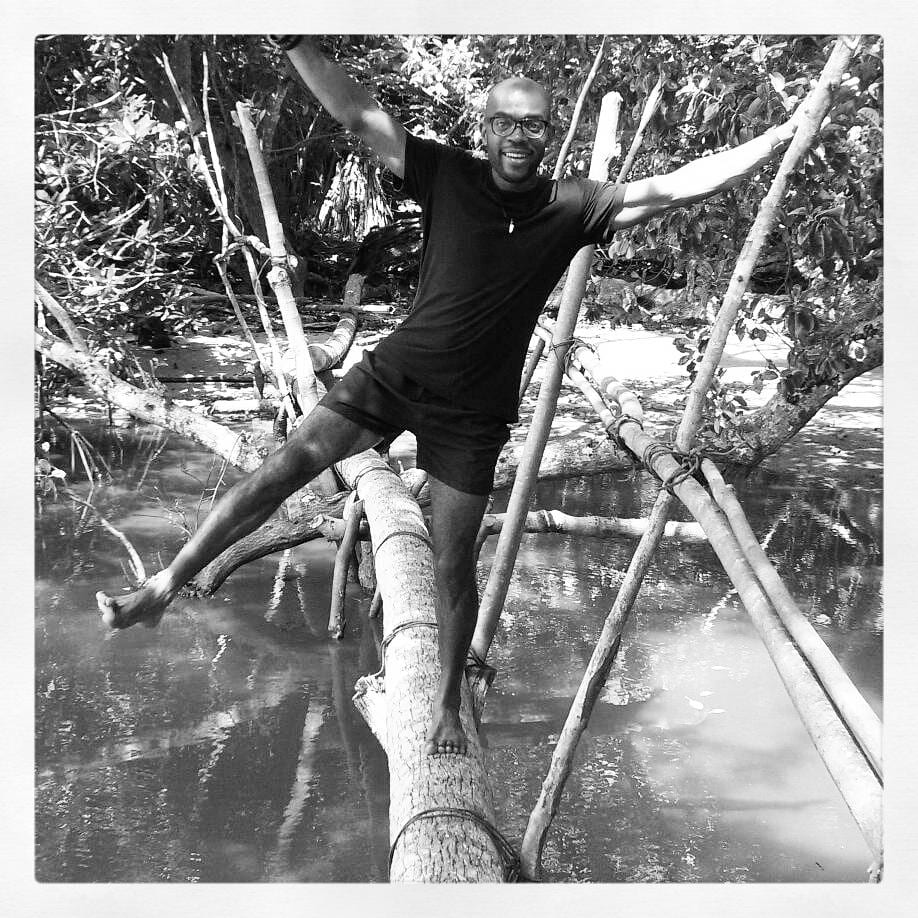
Sporting York U shirt and a Sulu Vakataga (the formal version of a traditional Fijian kilt) in Malawai Village, Gau Island.
Over the last three months, I have been working across seven villages on three Fijian islands to capture the perceptions and experiences of indigenous and traditional communities amidst significant climate change-induced impacts. Having spent several years working as a development communicator, mostly working through mainstream development programming, this field research has been a transformative experience, which presented me with both paradigmatic and personal challenges.
Communicating Climate Change
Having set out to conduct a project to optimize the communication modalities used to inform, educate and enable social change across these communities, boost their adaptive capacity and improve livelihoods, I have had to question my commitment to established global conservationist/environmental rhetoric. Even the very phrase climate change, which is nebulous and especially incomprehensible across many linguistic lines, now seems wanting. It often confuses people's ability to fully express their experiences with climate change-induced impacts, and the ways in which they're trying to respond. This in turn undermines our ability to support their efforts and even move towards enabling them to think beyond current experiential limits and adapt existing practices to better cope and even thrive amidst the rapid changes. This is precisely the purpose of my dissertation project.
Connecting Vulnerable Communities Worldwide
The project is uniquely mapping how macro-level climate change communication processes interface with the practices and retentions of traditional and indigenous communities that are drawn from Canada, Central America, Southeast Asia and the Pacific. The geographic, climatic, economic, ethnic, cultural and social diversity of the communities under study also uniquely allows me to map the commonalities and differences across vulnerable communities and contribute to altering prevailing staid conceptions of climate risks, namely the developed world against the emerging markets and the developing world. By changing how risk and vulnerabilities are conceived, and highlighting the fissures between macrolevel climate change communication and the needs and practices of traditional and indigenous communities across borders, the study will yield significant insights on how climate change communication strategies, policy, media narratives, climate education and plans can be reoriented to meet the needs of the most vulnerable.
Certainly, this is an especially ambitious research agenda that I have been able to boldly pursue with the gracious support of an Ontario Trillium Scholarship between 2016 and 2017, a Vanier Canada Graduate Scholarship 2017 to 2019, a MITACS Globalink Research Award for my India case, and consistent support from York International that aided me in completing the Fijian Case and the critical first section of the India Case, which I am now en route to Andhra Pradesh, South India to complete. This strong institutional support, which I am also fortunate to experience through the extraordinary supervision of communication historian Anne MacLennan (my supervisor) reaffirms the confidence with which I opted to pursue my longstanding intellectual commitment to social change in this community. I look forward to sharing more with you from the field in India, Belize and the Northern Territories in the coming weeks and months.
Tyrone C. Hall is a PhD Candidate Communication and Culture, York and Ryerson Universities and Vanier and Trillium Scholar.




